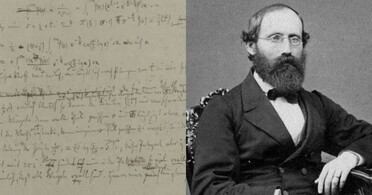Singular Integrals
Singular Integrals
Date
Starting day: October 7, 2019.
Last day: January 23, 2020.
Schedule: Monday 11 h. to 13 h. and Thursday 11 h. to 13 h. (there may be some flexibility in case of incompatibilities).
Location
Room A2 of the Centre de Recerca Matemàtica (CRM)
Lecturers: Xavier Tolsa, ICREA-UAB (theory), Yorgos Sakellaris, UAB (problem sessions)
Course Description:
This is a basic and rather standard course on singular integrals -a topic of central importance in the areas of analysis and PDE’s. The course might be useful specially for analysts and PDE people, and also for probabilists.
Organiser:
Xavier Tolsa, ICREA-UAB (theory)
Date
Starting day: October 7, 2019.
Last day: January 23, 2020 (there will be 9 weeks of the course before Christmas holidays, and two additional weeks on January).
Schedule: Monday 11 h. to 13 h. and Thursday 11 h. to 13 h.
(but there may be some flexibility in case of incompatibilities).
On Thursday, one of the hours will be a problem session, and the other three hours of the week will be devoted to theory.
Location
Room A2 of the Centre de Recerca Matemàtica (CRM)
UAB Science and Bioscience Faculty (Bellaterra)

Lecturers: Xavier Tolsa, ICREA-UAB (theory), Yorgos Sakellaris, UAB (problem sessions)
Course Description:
This is a basic and rather standard course on singular integrals -a topic of central importance in the areas of analysis and PDE’s. The course might be useful specially for analysts and PDE people, and also for probabilists.
Organiser:
Xavier Tolsa, ICREA-UAB (theory)
Programme
1. Review of basic results.
– Covering theorems.
– The Hardy-Littlewood operator and the Lebesgue differentiation theorem.
– The interpolation of Riesz-Thorin and Marcinkiewitz.
2. The Hilbert and Riesz transforms.
– The conjugate harmonic function and the Poisson conjugate kernel.
– The principal value of 1/x and the Hilbert transforms. Relationship with the conjugate Poisson kernel.
– L2 boundedness of the Hilbert transform.
– The Riesz tranforms. L2 boundedness.
3. Singular integrals with a Calderon-Zygmund kernel.
– Definitions. Truncated singular integrals.
– The Calderon-Zygmund decomposition.
– Weak (1,1) and strong (p,p) boundedness.
– The method of rotations.
– Cotlar’s inequality.
– Lp and pointwise convergence of the truncated singular integrals.
– Doubling and AD-regular measures.
4. H1, BMO, and Carleson measures.
– The atomic space H1. Boundedness from H1 to L1 of Calderon-Zygmund operators.
– BMO and the John-Nirenberg inequality.
– Boundedness from L1 to BMO of Calderon-Zygmund operators.
– Carleson measures and Carleson’s theorem.
5. The T(1) theorem.
– Different versions of the T1 theorem.
– The Haar basis.
– Proof of the T1 theorem and paraproducts.
– The Tb theorem.
Optional topics
Depending on the interest of the audience and the time left, one of the
following three topics could be studied.
6. Riesz potentials and the Sobolev theorem.
The Riesz potentials.
L- Lq boundedness of Riesz potentials.
The Sobolev theorem.
The Bessel potentials.
7. Calderon-Zygmund theory for non-doubling measures with
polynomial growth.
– Motivation: the Cauchy transform and the Painlevé problem. The
linear growth assumption.
– Examples of non doubling measures.
– Covering theorems and maximal operators.
– Doubling cubes and balls.
– Calderon-Zygmund decomposition.
– Weak (1,1) and Lp boundedness of Calderon-Zygmund operators.
– Cotlar’s inequality.
8. The Cauchy transform and curvature.
– The Cauchy kernel and Menger curvature.
– The Cauchy transform on Lipschitz graphs.
– The T1 theorem for the Cauchy transform.
References
Javier Duoandikoetxea, Fourier Analysis, Graduate Text in Mathematics, vol 29, American Mathematical Society.
Loukas Grafakos. Classical and modern Fourier analysis. Pearson, Prentice-Hall.
Pertti Mattila. Geometry of sets and measures in Euclidean spaces. Cambridge University Press.
Elias Stein. Harmonic analysis: real variable methods, orthogonality, and oscillatory integrals. Princeton University Press.
Elias Stein. Singular integrals and differentiability properties of functions. Princeton University Press.
